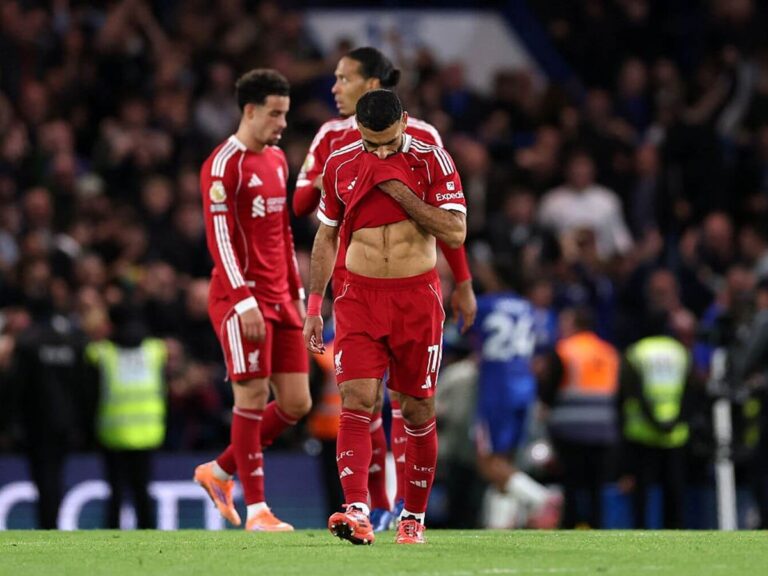The club, led by new manager Arne Slot, suffered three consecutive defeats across all competitions in a single week.
Reasons for the downturn
- Summer overhaul: The transition from Jurgen Klopp to Arne Slot has been significant. Despite a successful end to the previous season and a title win, the new manager has implemented a different style of play and integrated 10 new players, including record signings Florian Wirtz and Alexander Isak. This has disrupted the squad’s familiarity and rhythm.
- Player performance issues: Several key players, both new and old, are underperforming.
- Defensive vulnerability: The team has lost its defensive solidity, which was a feature of its successful 2024–2025 title campaign. The squad has a “soft underbelly,” with glaring errors becoming a frequent occurrence and the pressing system appearing less cohesive.
- Emotional strain: The squad is reportedly dealing with emotional stress, particularly following the tragic death of forward Diogo Jota.
- Tactical transition: The team is transitioning from a high-intensity “workmanlike” style to a new approach under Slot, and the shift is causing instability.
- Late-game struggles: Despite a strong start to the season with late winners, Liverpool have been losing games in the final minutes in recent weeks, as highlighted by defeats to Chelsea and Crystal Palace.
- Accumulated fatigue: The team is experiencing fatigue from a high volume of matches. However, the issue may be more complex than just burnout, as Slot has utilized squad rotation more than his predecessor.
- Wider context
- It is important to note that while Liverpool’s recent form is worrying, the wider context shows a team in transition that has still performed well in certain areas.
- Financial health: The club recorded a pre-tax loss of £57 million for the 2023–2024 season, partly due to not qualifying for the Champions League and investing heavily in new signings. However, commercial revenue has increased.
- Squad depth: Slot has rotated his team more to utilize the extensive squad, which may contribute to a lack of cohesion at times.
- Early season form: Before their recent slump, Liverpool began the 2025–2026 campaign strongly, winning their first seven games across all competitions. This shows the team is capable of high performance, but is currently in a “mini-crisis” as they head into the international break.



